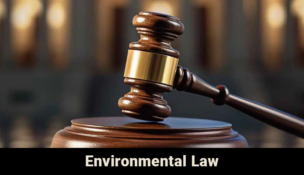Virginia Supreme Court to hear appeal of reversal of $2B judgment for Appian
McLean company's petition raised four errors made by appeals court
Kate Andrews, Beth JoJack //March 11, 2025//

Deposit Photos

Deposit Photos
Virginia Supreme Court to hear appeal of reversal of $2B judgment for Appian
McLean company's petition raised four errors made by appeals court
Kate Andrews, Beth JoJack //March 11, 2025//
The Supreme Court of Virginia has agreed to hear a petition from software company Appian, asking to reinstate a 2022 judgment worth about $2.04 billion in a trade secrets verdict against a competitor.
It’s the latest turn in the battle between Appian, which is based in Fairfax County‘s McLean area, and rival Pegasystems. In 2022, Appian won what was estimated to be the largest award in Virginia state court history after it sued Massachusetts-based Pega and an individual, Youyong Zou, in 2020, alleging that Zou, an employee of a government contractor using Appian software, illegally provided Pega with copies of Appian’s software and documentation. Pega disputed that claim, stating that anything viewed was available to the public.
Then, a panel of three Virginia Court of Appeals judges in July 2024 reversed the verdict and ordered a new trial, saying that Appian was improperly relieved of the burden of proving that Pega financially benefited from misappropriating Appian’s trade secrets.
Now, Appian’s appeal will be heard by the state Supreme Court, the court decided March 7. The court has not yet set a date for a hearing.
In its petition to the Supreme Court, Appian raised four different errors it believes the Court of Appeals made, and the petition was granted on each of the four issues, according to a company news release.
“This was what we consider a pretty serious violation of our trade secrets,” Appian’s general counsel, Christopher Winters, said Tuesday. “This is serious conduct that we … felt strongly that we needed to get addressed by the courts.”
Pega issued a statement maintaining that the appeals court’s decision last year to overturn the jury verdict “was a result of a flawed trial on many fronts, including that we were prevented from showing that our software never adopted any of Appian’s supposed trade secrets.”
“The appellate court’s 60-page decision was unanimous, and we believe Appian will have to overcome numerous, thorough and well-reasoned grounds to overturn the appeals court decision,” Pega added in the statement.
The Virginia Supreme Court also agreed to hear Pega’s cross-appeal issues, which asks the court to review whether the trial court and court of appeals made an error by finding that there was sufficient evidence that Appian “took reasonable efforts to maintain the secrecy of its alleged trade secrets when Appian disclosed that information to others who were under no obligation to keep it secret in holding” and whether Appian failed to sufficiently identify some of its trade secrets.
In its original complaint filed in 2020 with the Fairfax County Circuit Court, Appian claimed that it lost 201 customers and alleged $479 million in “unjust enrichment of Pega” between 2012 and 2020, but Pega’s attorneys argued that the information gained by the company was not actually “trade secrets” because some of it was sourced to publicly available materials, according to the trial transcript.
Appian included Zou, a software architect, in the original lawsuit, and he was ordered to pay Appian $5,000.
Pegasystems was also found liable for computer fraud in violation of the Virginia Computer Crimes Act, but the jury awarded Appian only $1 on that count.
The 2024 appeals court opinion authored by Judge Frank K. Friedman rejected Pega’s claim that “Appian failed to establish misappropriation of any trade secret as a matter of law. However, we agree with Pega that the trial court erred in granting [a jury instruction], which relieved Appian of its proper burden to prove causation between the alleged misappropriation and any damages.”
Moreover, the opinion reads, Appian was allowed to use Pega’s total sales during the eight-year period to prove unjust enrichment — but the trial court improperly blocked Pega “from showing that many of Pega’s total sales were in areas in which Appian did not even compete with Pega.”
The trial court also “abused its discretion” by not permitting Pega to attempt to authenticate software evidence during the trial. Instead, the circuit court judge excluded software because it was on “a different laptop than provided in discovery.” Finally, the appeals decision says that the trial court “should refrain from instructing the jury that the number of people with access to Appian’s platform is ‘not relevant.’”
Appian, which CEO and Chairman Matt Calkins co-founded in 1999, employs 2,033 employees, 1,339 of whom were based in the United States at the end of 2024. For fiscal 2024, Appian reported revenue of $617 million, an increase of 13% over the previous year.
Editor’s note: This story has been corrected to clarify Appian’s allegations in the 2020 lawsuit.


















